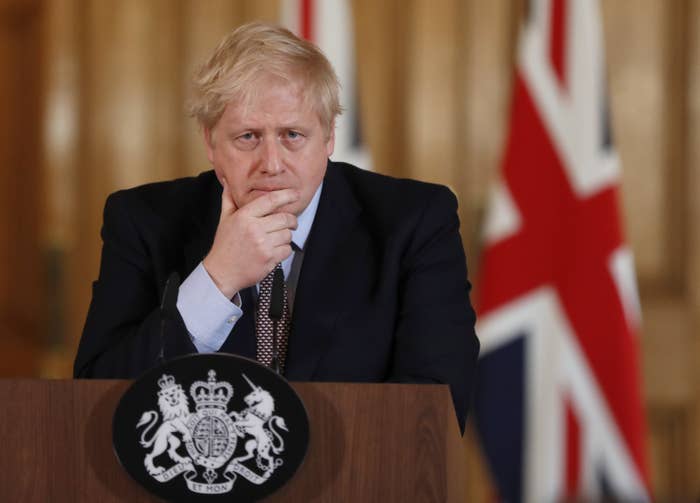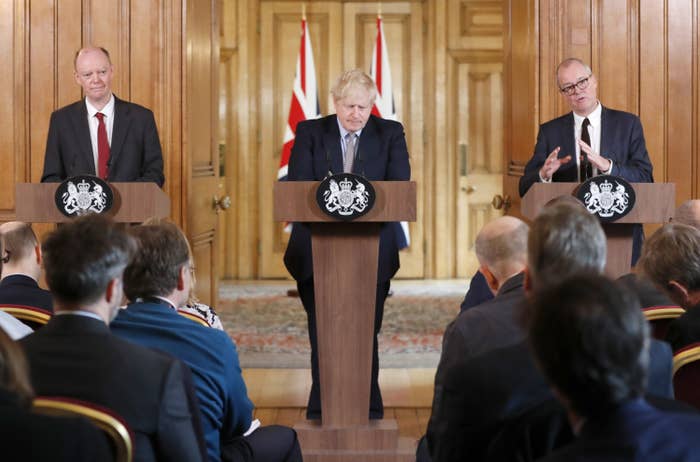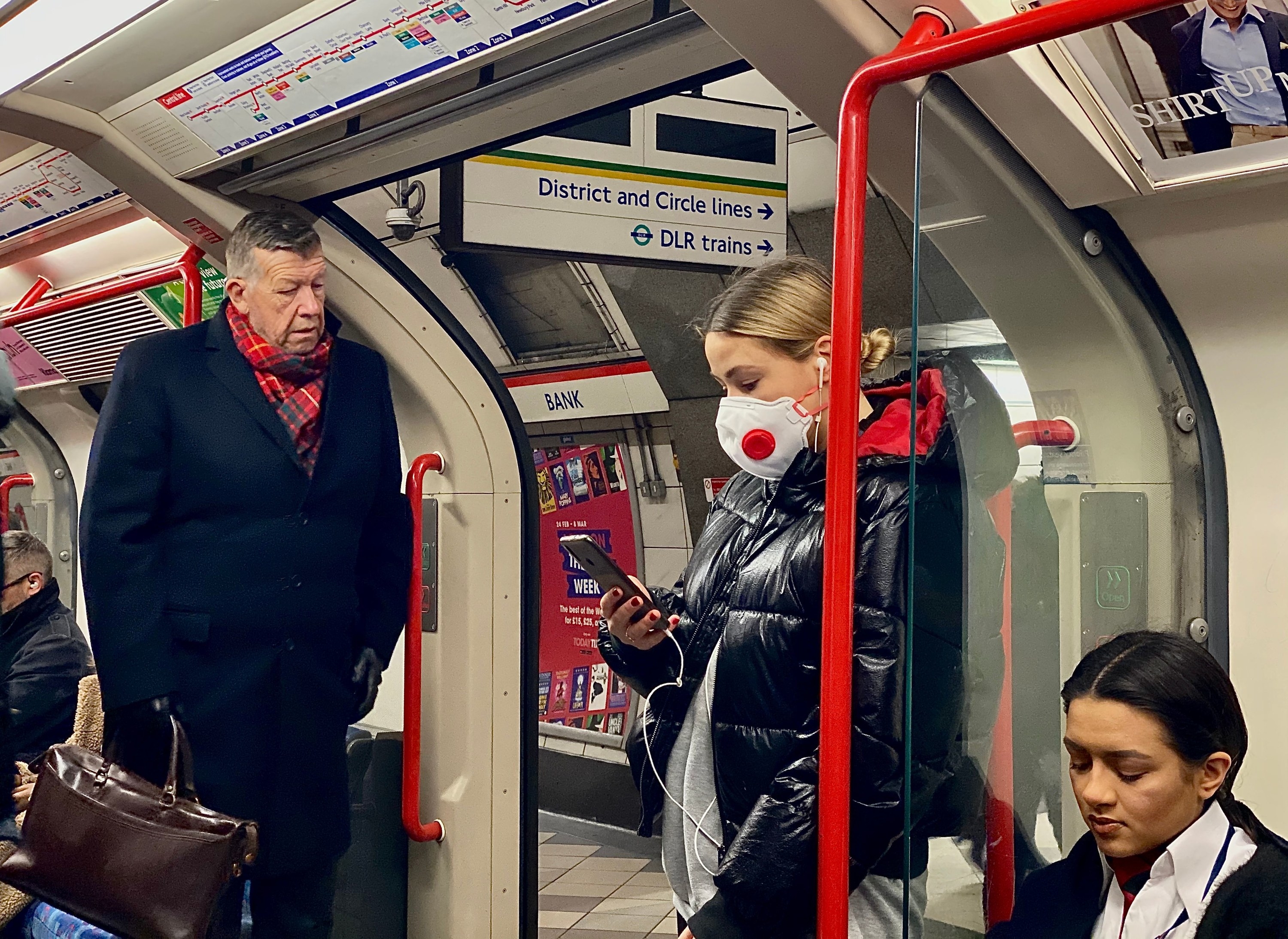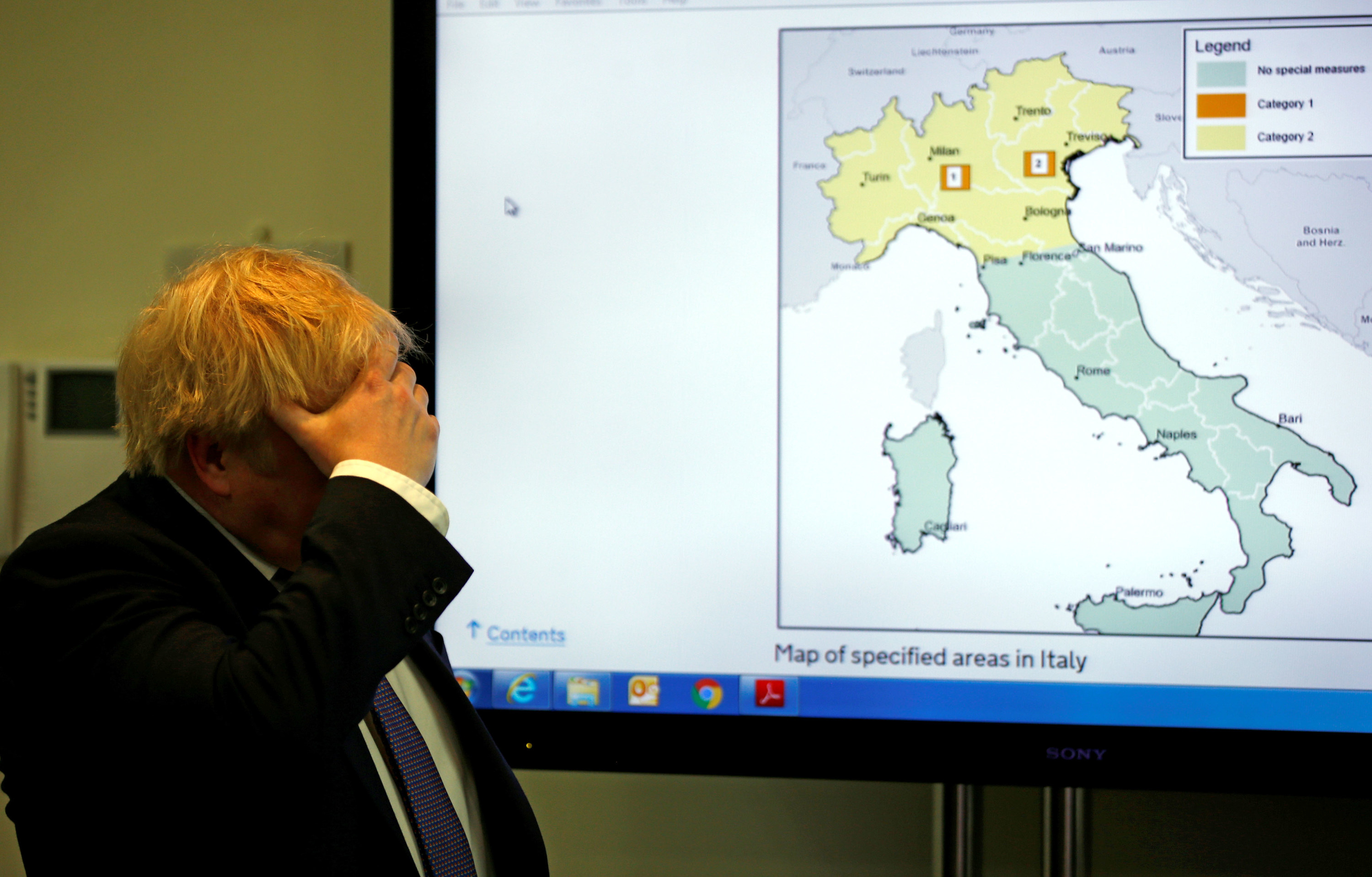
The UK government has released an “action plan” for fighting the coronavirus, warning that the nation needs to be ready for the outbreak to potentially reach its peak in a number of weeks.
Prime minister Boris Johnson held a press conference on Tuesday, alongside the government’s chief medical officer Chris Whitty and chief scientific adviser Patrick Vallance, to field questions.
“This country is going to get through coronavirus, no doubt at all, and get through it in good shape,” the PM said. Here’s what we know so far.
The disease has the potential to spread extensively.
COVID-19 is the name of the illness seen in people infected with a new strain of the coronavirus not previously seen in humans. It originated in Wuhan City, China, when the Chinese authorities alerted the World Health Organisation on Dec. 31, 2019. Because it’s a new virus, the lack of immunity in the population — and the absence of a vaccine — means that COVID-19 has the potential to “spread extensively”, according to the UK government.
Health secretary Matt Hancock announced that as of 9am on Tuesday there were 51 confirmed cases in the UK, up from 39 the day before.
The main symptoms are a cough, a high temperature, and, in severe cases, shortness of breath. The “great majority” of people infected will have a “mild-to-moderate but self-limiting illness, similar to seasonal flu”. But a minority of people who get COVID-19 will need hospital care, most often to treat pneumonia. In a “small proportion” of these, the illness may lead to death. Elderly people and those with underlying conditions are most at risk. The illness is rarer in people under 20 years old.
This could kick off in the next few weeks.
If the disease does become established in the UK — and the PM said it was “highly likely” that the virus would spread — there will likely be a slow build-up of cases that eventually accelerates towards a peak. That could take around nine or 10 weeks, according to officials, before the peak lasts around two weeks and starts to decline over the following two or three months.
The government is planning a range of measures to limit the spread of the virus just ahead of this peak point in order to “flatten it” and make sure UK health systems can cope. Worst case scenario modelling suggests that 80% of people could become infected, with a death rate of around 1%. UK officials stressed that this was not a likely outcome and predicted the infection rate will be far lower.
There are four strands to the government’s strategy: “Contain, delay, research and mitigate”.
The UK is still in the containment stage, which effectively means trying to get rid of the virus completely. However, as time goes on this is looking less likely.

A lot of people could be stuck at home.
The government says it’s possible that up to one-fifth of workers may be off sick during the peak weeks. There are various “population distancing strategies” being drawn up to limit the spread of the disease and protect the most vulnerable — including asking more people to work from home and reducing large-scale gatherings.
These measures would have to be in place for around 12 weeks to be effective, officials said, but there is little point in enacting them too soon. This is because they have a “social cost”, not least a major impact on the economy, and experts want to hold back these strategies for the weeks before the peak of the epidemic.
The key advice at the moment is for people to wash their hands for 20 seconds in hot soapy water — as the PM repeatedly says, two verses of "Happy Birthday." Johnson said he had not stopped shaking people's hands: “I was at a hospital the other night where I think a few there were actually coronavirus patients and I shook hands with everybody, you’ll be pleased to know."
The government doesn't want too many schools to close.
The action plan sets out the “possibility of having to close educational settings in order to reduce the spread of infection”. But officials are hoping this will not have to be done on a widespread basis because relatively few cases are being seen among children, and the impact on parents — not least those working in the health service — would be huge.

Retired doctors could come back.
The NHS is likely to come under severe strain as staff start getting hit with the virus and more patients need to go into hospital for treatment. It means that some “non-urgent care” such as elective surgery might be delayed to focus on treating patients with COVID-19, and recently retired doctors and nurses might be called back to work.
Officials underlined, however, that the vast majority of coronavirus patients can manage their symptoms at home without needing to come into hospital. Johnson also called on people to “self-restrain” and try to limit their use of GPs and the NHS 111 hotline if they did not seriously need access to these services.
The police could be hit hard with a significant loss of officers and staff; the government says they should focus on “responding to serious crimes and maintaining public order”. And the Ministry of Defence could be asked to step in to provide support to the emergency services, including fire and rescue, if needed.
Businesses will get some help.
Firms in the UK will be given help with short-term cash flow problems caused by subdued demand, including more time to pay tax bills. Johnson said the government would also look at options to help low-paid workers who need to take time off due to COVID-19, such as extending statutory sick pay.

People will (hopefully) still be able to go on holiday.
A lot of people have booked holidays this spring and summer and aren't sure whether they can still go. It all depends on the timing and how much the virus spreads and where it is most concentrated. Asked by BuzzFeed News whether people should stay home, chief medical officer Chris Whitty said that if the virus had spread across the world, travelling “makes no difference”. He did warn, however, that vulnerable people should check whether their destination has a “weak health service” as this could be highly important if they contract the virus abroad.
Care homes will need extra precautions because those over 80 are the most at risk.
Officials said it was important to strike a balance between protecting vulnerable family members and not leaving them isolated and frightened. They pointed to measures in Singapore where the authorities have banned gatherings in care homes — but family members are still able to visit providing they are well and have washed their hands thoroughly.
Parliament might have to change the law to better tackle the outbreak.
New laws could be needed to allow retired doctors who have given up their licence to quickly come back and work again in hospitals and GP practices. There could also be legislation for schools, for example, to allow teachers to teach bigger class sizes when their colleagues fall ill, to allow teachers to teach at different schools, and potentially to allow children to attend different schools.
The virus might come back again.
The government said it was possible that an outbreak of COVID-19 could happen in “multiple waves”. “Depending upon what the emerging evidence starts to tell us, it may be necessary to ensure readiness for a future wave of activity,” the action plan said. This means that every strategy being deployed over the next few weeks will be analysed for its effectiveness — in case it needs to be used again in a few months’ time.

